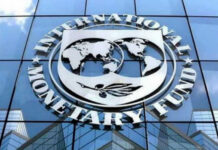Faruque Ahmed
Two contrasts are noticeable this time with our three trillion take national budget for FY2015-16. These are an oversize annual development program (ADP) with an allocation of Tk 87,000 crore in one hand and a sharp drop in aid disbursement by donors as well as poor resource utilization causing a spillover of unused money in the aid pipeline.
Reports say foreign aid disbursement fell by 20 percent in the first two months of the current fiscal year from the same period a year earlier due to low development spending. Between July and August, reports say foreign aid disbursement stood at $292.71 million against a higher disbursement target set for this fiscal year.
Aid drop, borrowing up
Meanwhile the government’s borrowing from banks have shot up to over 8,000 crore in the first two months of FY2015-16 thus making out a paradoxical situation in which more borrowing from local banks would be needed to overcome the fund scarcity because of slowdown in foreign aid disbursement.
During these two months, the development ministries and divisions were able to spend only 6.71 percent of the aid. According to reports, the government’s foreign aid disbursement target in the year has been set at $4.36 billion, up from $3.35 billion last fiscal year. But bureaucratic inefficiency and poor government capacity to use the resources is causing delay in aid utilization from the beginning.
ERD officials said project implementation remains slow because the work mobilization at field level takes longer time; besides there is a significant time leg in disbursement of fund on quarterly basis. Contractors work first. So the amount of disbursement is not a direct denominator of physical progress; it only indicates slow progress in the field.
So the disbursement of only 3 percent of total ADP allocation is not a big surprise although it remained quite low in the last four years. This is also raising question about the causes for setback in ADP implementation.
Meanwhile, disbursement by the World Bank (WB), which provides a large chunk of foreign assistance to Bangladesh has rather increased by about 65 percent year-on-year. ERD officials said joint monitoring of disbursement made it to happen.
But during the period the total aid disbursement by the donors declined by 20 percent. JICA returned fund from a project while some other donors have also reduced releasing fund mainly due to lack of preparatory work to begin implementation of several projects. WB has disbursed $171.23 million in the first two months of the fiscal year.
Meanwhile, sudden flare up of security concerns following killing of two foreign nationals in Bangladesh has created a new uncertainty with global community. But it is too early to say if it would have any slow down impact on aid disbursement and funding of projects by donors’ money.
Swindlers getting protection
Bangladesh also gets substantial foreign aid from Asian Development Bank (ADB). During the first two months of this fiscal year, its disbursement has been almost halved from a year earlier to $43 million.
This year ADB is set to give $960 million to Bangladesh when the country’s total foreign aid in the pipeline stands at $21.71 billion as of 30 June. The huge unutilized funds show the poor capacity of the government to strengthen its institutional efficiency and skills to mobilize credible projects to accelerate the country’s development.
Meanwhile, the country is losing more money in terms of capital flight instead of receiving aid for development. The Daily Bangladesh Prothidin reported last week that dishonest businessmen transferred at least Tk 15,000 through 11 banks during the last five years using fake trade cover.
This is only the tip of the iceberg as capital flight is taking place in multifarious way. This tends to suggest that Bangladesh Bank has so far failed to implement its regulatory regime on state owned commercial banks (SOBs) to prevent funding fake imports.
The banks includes state-owned (SOBs) Sonali, Rupali, Agrani, Janata and BASIC Bank, two specialized agricultural banks and also a few private commercial banks which had provided funds to businesses under political pressures.
These fake loans funded machinery imports and capital goods under back to back L/Cs and bonded warehouse facilities even without loans sanctioned by banks for the purpose. Under such arrangements, importers smake payment against the import bills to foreign exporters.
Some banks also sell the bill of lading to other banks thereby shifting the responsibility of payment on others. Most swindling of funds take place in SOBs such as Sonali Bank and BASIC Bank and other SOBs.
Seek help from FATF
As it appeared when banks got stuck up in such troubles and look for collateral, they find the land put on mortgage belongs to other people. This proves that bank officials sanctioned loans without properly evaluating the papers. But the question is why?
This clearly indicates that such large scale swindling and resultant capital flights can’t take place without active connivance of the bank director board and under their pressure senior bank officials. They could not have it with impunity without strong political links.
Former Bangladesh Bank Governor Dr Salehuddin Ahmed said it is almost an open secret and the responsibility lies with the government. He said it is Sonali Bank and BASIC Bank, the situation has not much improved.
A team of Financial Action Task Force (FATF), a global watchdog on money laundering came on a visit to Bangladesh last week to review effectiveness of measures against money laundering and terrorist financing. It seems the government is more actively guiding the team to focus on sources of terror-financing in the country while ignoring the danger that Bangladesh is facing from massive money laundering by people enjoying political protection.
The spillover of money in Swiss Banks is already known to all and surprisingly that Swiss Banks authorities are not ready to identify Bangladeshi nationals who have deposited funds in those banks. Many believe that the Financial Action Task Force must take money laundering from Bangladesh seriously.
Source: weekly Holiday









